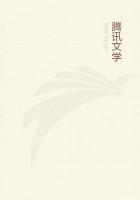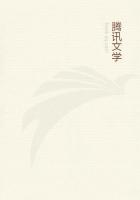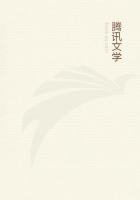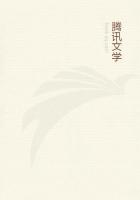We must consider also whether soul is divisible or is without parts, and whether it is everywhere homogeneous or not; and if not homogeneous, whether its various forms are different specifically or generically: up to the present time those who have discussed and investigated soul seem to have confined themselves to the human soul. We must be careful not to ignore the question whether soul can be defined in a single unambiguous formula, as is the case with animal, or whether we must not give a separate formula for each of it, as we do for horse, dog, man, god (in the latter case the 'universal' animal-and so too every other 'common predicate'-being treated either as nothing at all or as a later product). Further, if what exists is not a plurality of souls, but a plurality of parts of one soul, which ought we to investigate first, the whole soul or its parts? (It is also a difficult problem to decide which of these parts are in nature distinct from one another.) Again, which ought we to investigate first, these parts or their functions, mind or thinking, the faculty or the act of sensation, and so on? If the investigation of the functions precedes that of the parts, the further question suggests itself: ought we not before either to consider the correlative objects, e.g. of sense or thought? It seems not only useful for the discovery of the causes of the derived properties of substances to be acquainted with the essential nature of those substances (as in mathematics it is useful for the understanding of the property of the equality of the interior angles of a triangle to two right angles to know the essential nature of the straight and the curved or of the line and the plane) but also conversely, for the knowledge of the essential nature of a substance is largely promoted by an acquaintance with its properties: for, when we are able to give an account conformable to experience of all or most of the properties of a substance, we shall be in the most favourable position to say something worth saying about the essential nature of that subject; in all demonstration a definition of the essence is required as a starting-point, so that definitions which do not enable us to discover the derived properties, or which fail to facilitate even a conjecture about them, must obviously, one and all, be dialectical and futile.
A further problem presented by the affections of soul is this: are they all affections of the complex of body and soul, or is there any one among them peculiar to the soul by itself? To determine this is indispensable but difficult. If we consider the majority of them, there seems to be no case in which the soul can act or be acted upon without involving the body; e.g. anger, courage, appetite, and sensation generally. Thinking seems the most probable exception; but if this too proves to be a form of imagination or to be impossible without imagination, it too requires a body as a condition of its existence. If there is any way of acting or being acted upon proper to soul, soul will be capable of separate existence; if there is none, its separate existence is impossible. In the latter case, it will be like what is straight, which has many properties arising from the straightness in it, e.g. that of touching a bronze sphere at a point, though straightness divorced from the other constituents of the straight thing cannot touch it in this way; it cannot be so divorced at all, since it is always found in a body. It therefore seems that all the affections of soul involve a body-passion, gentleness, fear, pity, courage, joy, loving, and hating; in all these there is a concurrent affection of the body. In support of this we may point to the fact that, while sometimes on the occasion of violent and striking occurrences there is no excitement or fear felt, on others faint and feeble stimulations produce these emotions, viz. when the body is already in a state of tension resembling its condition when we are angry. Here is a still clearer case: in the absence of any external cause of terror we find ourselves experiencing the feelings of a man in terror. From all this it is obvious that the affections of soul are enmattered formulable essences.
Consequently their definitions ought to correspond, e.g. anger should be defined as a certain mode of movement of such and such a body (or part or faculty of a body) by this or that cause and for this or that end. That is precisely why the study of the soul must fall within the science of Nature, at least so far as in its affections it manifests this double character. Hence a physicist would define an affection of soul differently from a dialectician; the latter would define e.g. anger as the appetite for returning pain for pain, or something like that, while the former would define it as a boiling of the blood or warm substance surround the heart. The latter assigns the material conditions, the former the form or formulable essence; for what he states is the formulable essence of the fact, though for its actual existence there must be embodiment of it in a material such as is described by the other. Thus the essence of a house is assigned in such a formula as 'a shelter against destruction by wind, rain, and heat'; the physicist would describe it as 'stones, bricks, and timbers'; but there is a third possible description which would say that it was that form in that material with that purpose or end. Which, then, among these is entitled to be regarded as the genuine physicist? The one who confines himself to the material, or the one who restricts himself to the formulable essence alone? Is it not rather the one who combines both in a single formula?
If this is so, how are we to characterize the other two? Must we not say that there is no type of thinker who concerns himself with those qualities or attributes of the material which are in fact inseparable from the material, and without attempting even in thought to separate them? The physicist is he who concerns himself with all the properties active and passive of bodies or materials thus or thus defined; attributes not considered as being of this character he leaves to others, in certain cases it may be to a specialist, e.g. a carpenter or a physician, in others (a) where they are inseparable in fact, but are separable from any particular kind of body by an effort of abstraction, to the mathematician, (b) where they are separate both in fact and in thought from body altogether, to the First Philosopher or metaphysician. But we must return from this digression, and repeat that the affections of soul are inseparable from the material substratum of animal life, to which we have seen that such affections, e.g. passion and fear, attach, and have not the same mode of being as a line or a plane.

